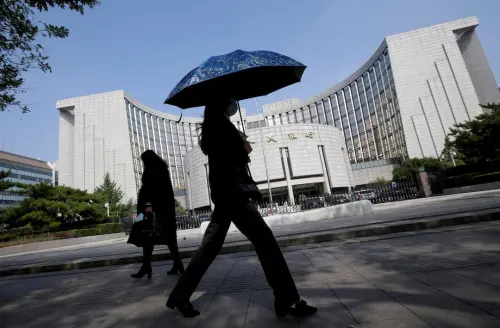According to state media on Saturday, China is advised to carefully time and calibrate monetary policy adjustments, indicating that immediate further easing is not likely to boost the world's second-largest economy.
The official Shanghai Securities News highlighted the importance of choosing the appropriate timing for adjustments to support an economy dealing with escalating trade tensions with the U.S. In alignment, the central bank-owned Financial News emphasized the necessity of finding the optimal pace for monetary policy tweaks.
These statements suggest a potential delay in expectations for immediate interest rate cuts or reductions in banks' reserve requirement ratios. While China still has room to adjust policies, the Shanghai Securities News emphasized the significance of timing and strength in policy changes to effectively manage future uncertainties.
The balance between supporting the economy and managing risks is crucial for China's monetary policy, constrained by discrepancies in Sino-U.S. yields and domestic banks' interest margins.
Last year, China cut benchmark interest rates and reserve requirement ratios twice to bolster the economy, despite no rate cuts by the People's Bank of China this year amid pressure from U.S. tariffs, economic stagnation, and subdued consumer spending.
Monetary easing, as indicated in Friday's editorial by the Financial News, involves structural tools beyond mere interest rate or reserve requirement adjustments. Notably, financial stimulus alone may not sustainably boost consumption.
Zichun Huang, a China economist at Capital Economics, notes that investors are refraining from expecting further monetary easing, evident in recent bond yield increases. Huang highlights that recent stimulus measures did not involve policy rate reductions, and projections set at the National People's Congress indicate a possibly less expansionary policy in 2024.
